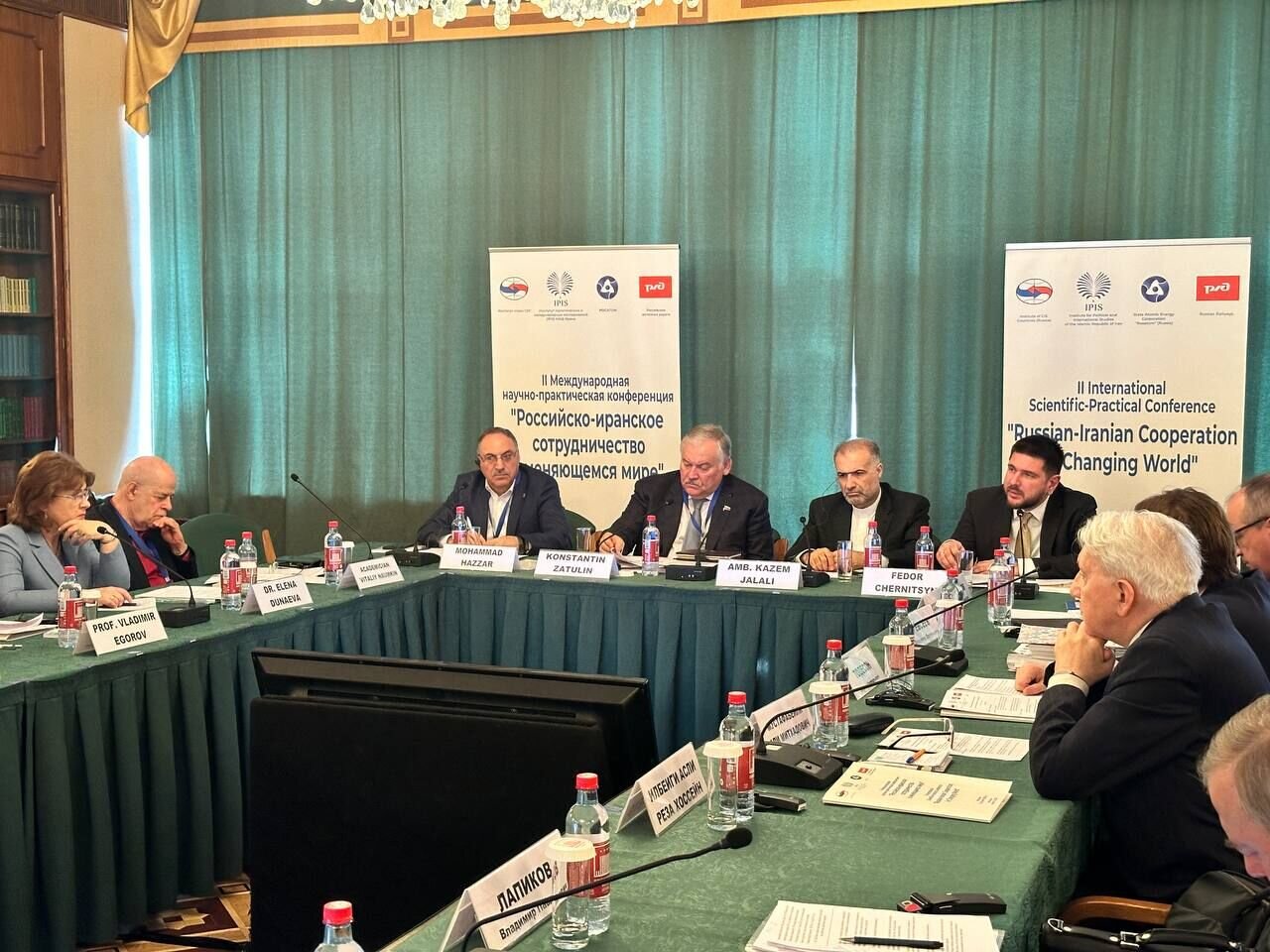Iran eyeing observer status in Eurasian Economic Union

TEHRAN – A few months after signing a Free Trade Agreement with the Eurasian Economic Union (EAEU), Iran’s Ambassador to Moscow Kazem Jalali has announced the Islamic Republic is seeking to gain observer status in the union soon.
Jalali made the remarks at a conference on Iran-Russia cooperation dubbed the International Russia-Iran Cooperation in the Changing World Conference, which was held in the presence of a group of Iranian and Russian experts in the Russian capital Moscow on Thursday.
He also expressed hope that a free trade agreement, which Iran and the EAEU signed in late December, will be implemented as soon as possible following approval by parliaments of the member states of the EAEU.
The Ambassador further pointed out the International North-South Transport Corridor (INSTC), noting that this mega-project can benefit EAEU members economically and would help boost security and peace in the region.
Elsewhere in his remarks, Jalali referred to the Israeli regime’s crimes in Gaza, calling them a clear example of injustice, noting that Iran is highly critical of the current world order that is based on unilateralism.
Iran and the member states of Eurasian Economic Union (EAEU), Belarus, Kazakhstan, Kyrgyzstan, Russia, and Armenia, signed a free trade agreement (FTA) in a ceremony in St. Petersburg on December 23.
Iranian Minister of Industry, Mining, and Trade Abbas Aliabadi signed this agreement, which was the result of more than two years of negotiations and expert work, on behalf of Iran.
On behalf of the EAEU, the deputy prime ministers of the member countries signed the agreement.
This agreement needs to be approved by the parliaments of six countries (Iran and EAEU five member states) to become a law and become operational.
Based on the mentioned agreement between Iran and the EAEU, the parties will eliminate tariffs for 87 percent of goods in their trade exchanges.
In the meantime, each of the parties prepares a negative list that includes goods that are considered sensitive goods for one of the parties and it is not possible to remove the tariff.
Earlier in December 2023, EAEU Minister in Charge of Trade Andrey Slepnev said in a meeting with Jalali that Iran will become one of the most important trade partners of the Eurasian Economic Union with the signing of an FTA between the two sides.
The official also called the agreement the most important cooperation document between the two sides.
Jalali, for his part, said the free trade agreement is the result of intensive negotiations and the will of the two sides to develop their relations.
In 2018, Iran and the EAEU inked a preferential trade agreement (PTA), which came into effect on October 27, 2019.
The two sides later began negotiations to upgrade the PTA to an FTA after the success of the former.
Also in August 2023, Slepnev said that the EAEU is ready to boost its annual trade with Iran to $30 billion.
The official said the preferential trade agreement between Iran and the EAEU resulted in the trade between the two sides doubling and it is expected that by signing the free trade agreement the trade between the two sides will be doubled once again.
“The signing of the comprehensive agreement between Iran and the Eurasian Union will provide suitable conditions for mutual access to the markets for both sides,” Slepnev said.
“We know very well that the volume of trade with a large country like Iran is still not very high, and therefore, it seems that targeting 30 billion dollars of annual trade is a good way to develop trade between our countries,” he noted,
The Eurasian Economic Union was established in 2015 at the initiative taken by Russian Federation, Kazakhstan, and Belarus. Afterward, the Republic of Armenia and Kyrgyzstan joined the Union.
EF/
